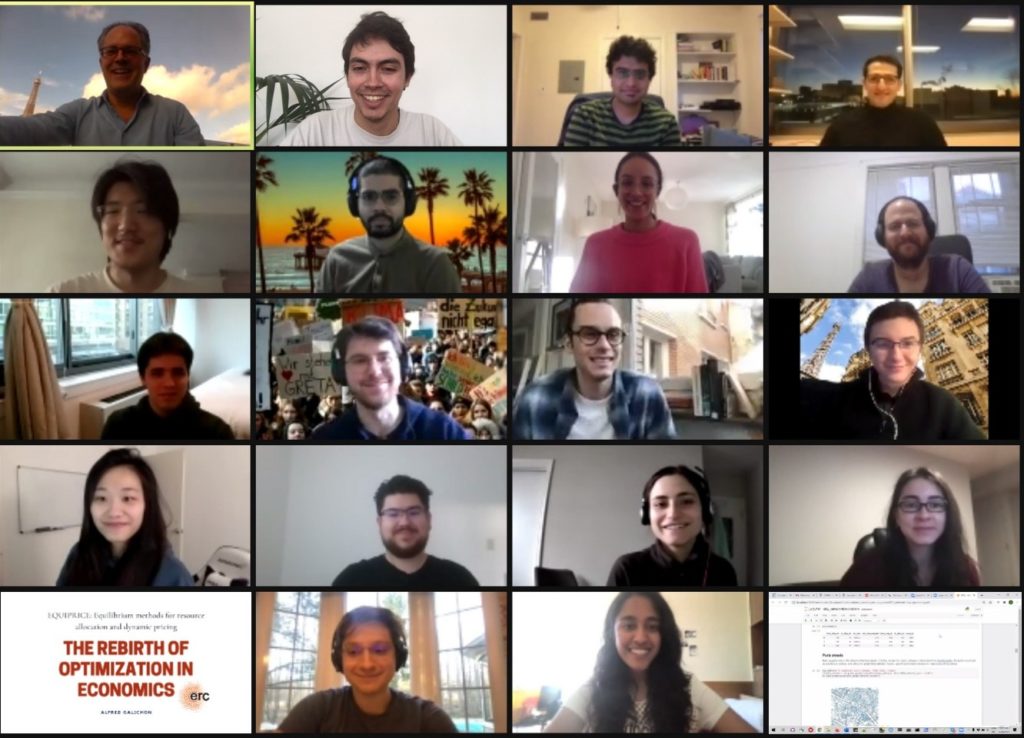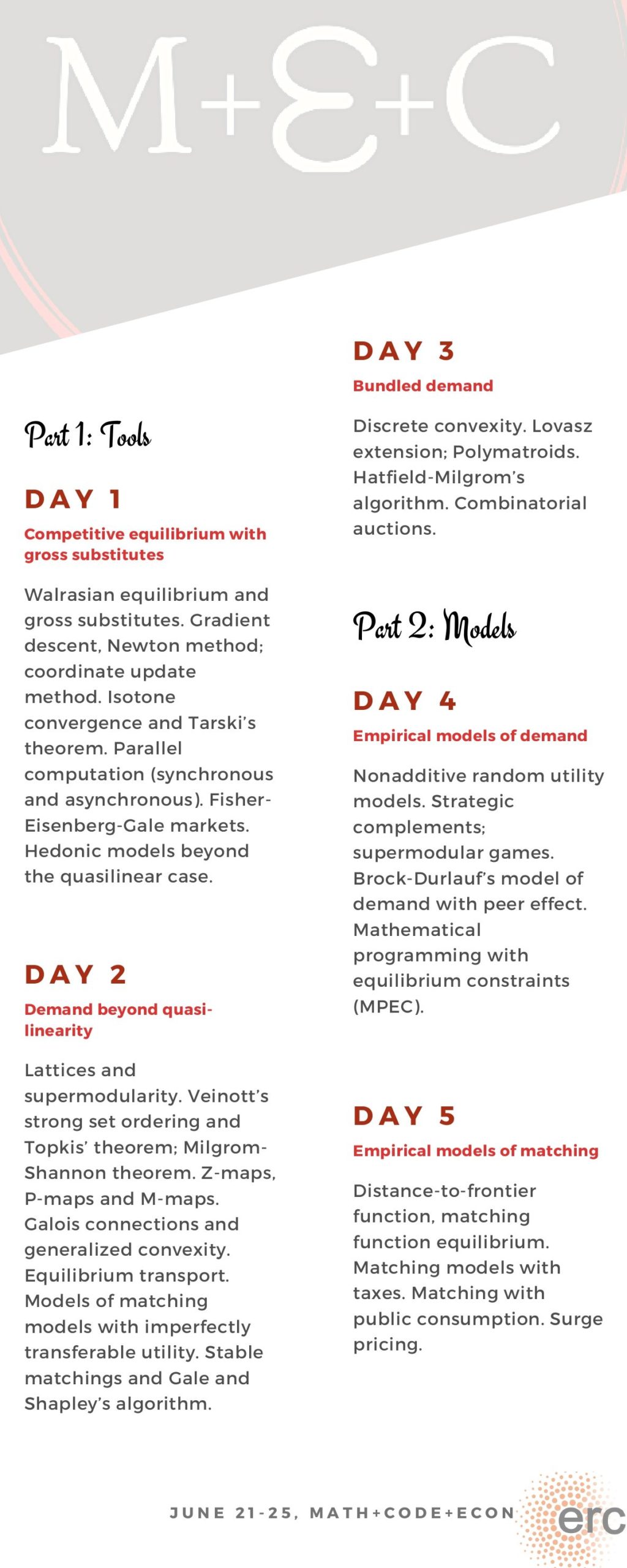mec_equil
‘math+econ+code’ masterclass on equilibrium transport and matching models in economics

Format: online + in person (situation allowing)
Please visit the new webpage of the course
https://www.math-econ-code.org/june2021
Description
This very intensive course, part of the ‘math+econ+code’ series, is focused on the computation of competitive equilibrium, which is at the core of surge pricing engines and allocation mechanisms. It will investigate diverse applications such as network congestion, surge pricing, and matching platforms. It provides a bridge between theory, empirics and computation and will introduce tools from economics, mathematical and computer science. Mathematical concepts (such as lattice programming, supermodularity, discrete convexity, Galois connections, etc.) will be taught on a needs basis while studying various economic models. The same is true of computational methods (such as tatonnement algorithms, asynchronous parallel computation, mathematical programming under equilibrium constraints, etc.). Hence there are no prerequisite other than the equivalent of a first-year graduate sequence in econ, applied mathematics or other quantitative disciplines.
The teaching format is somewhat unusual: the course will be taught over five consecutive days, between 8am and 12noon (US Eastern time). This course is very demanding from students, but the learning rewards are high. The morning lectures will alternate between 1 hour of theory followed by 1 hour of coding. Students are expected to write their own code, and the teaching staff will ensure that it is operational. This course is therefore closer to cooking lessons than to traditional lectures.
Aim of the course
• Provide the conceptual basis of competitive equilibrium with gross substitutes, along with various computational techniques (optimization problems, equilibrium problems). Show how asynchronous parallel computation is adapted for the computation of equilibrium. Applications to hedonic equilibrium, multinomial choice with peer effects, and congested traffic equilibrium on networks.
• Describe analytical methods to analyze demand systems with gross substitutes (Galois connections, lattice programming, monotone comparative statics) and use them to study properties of competitive equilibrium with gross substitutes. Describe the Kelso-Crawford-Hatfield-Milgrom algorithm. Application to stable matchings, and equilibrium models of taxation.
• Derive models of bundled demand and analyze them using notions of discrete convexity and polymatroids. Application to combinatorial auctions and bundled choice.
Instructors
A. Galichon (NYU Econ+Math and Sciences Po)
Course material
Course material (lecture slides, datasets, code) will made available before the lectures in this Github repository.
How to apply
Interested individuals should apply through this form and enclose a CV and letter of motivation. Applicants must also have their faculty mentor send a letter of reference on their behalf to math.econ.code@gmail.com. Application material should be received in full before May 15th. Please note the course is interactive, which makes active participation an important requirement. We will let you know the status of your application by May 31st.
Outline
• Monday: competitive equilibrium with gross substitutes
• Tuesday: demand beyond quasi-linearity
• Wednesday: bundled demand
• Thursday: empirical models of demand and matching
• Friday: network congestion
Synopsis
Supported by:
- The European Research Council, grant ERC CoG-866274 EQUIPRICE,“Equilibrium methods for resource allocation and dynamic pricing.” (2020-2025)
- The National Science Foundation, grant DMS-1716489, “Optimal and equilibrium transport: theory and applications to economics and data science.” (2017-2020)

